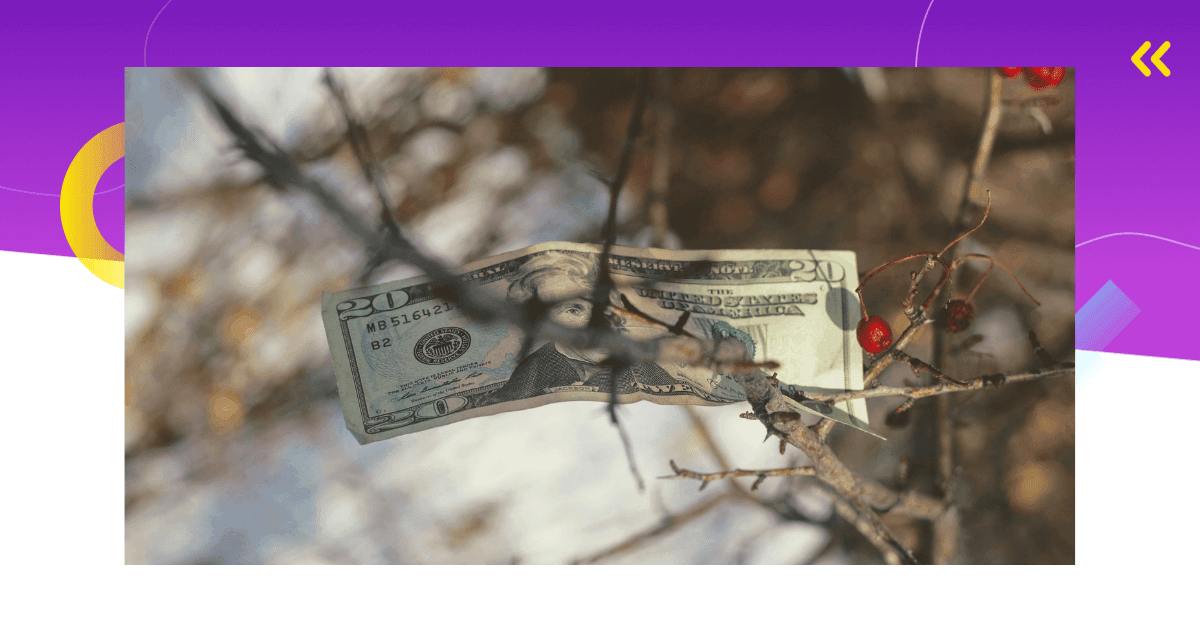Cost Per Click (CPC) is a key advertising metric for measuring the success of your campaigns. Keep reading to learn its definition, formula, and how to calculate it using our CPC calculator.
I’ve also included some tips on how to reduce cost per click.
What Is Cost Per Click (CPC)?
Cost Per Click (CPC) is a digital advertising metric that tells you how much you pay each time someone clicks on one of your ads.
It’s a common way to measure the cost effectiveness of online advertising campaigns across platforms like Google Ads, Facebook, and others. Essentially, CPC helps you understand the direct cost for each click that leads a potential customer to your website or landing page.
The main advantage of CPC advertising is that it ensures that you only pay for ads that have successfully generated user engagement, rather than just views or impressions.
This model encourages advertisers to create highly relevant and engaging ads because they only pay when users interact with their ads, making it a cost-effective strategy especially when aiming to convert interest into action.
CPC and CPM: What’s the Difference?
CPC (Cost Per Click) and CPM (Cost Per Mille, also known as Cost Per Thousand Impressions) are both pricing models used in digital advertising, but they focus on different aspects of the ad campaign’s reach and effectiveness:
- CPC (Cost Per Click): This model charges you every time someone clicks on your ads. CPC is useful for advertisers who want to ensure they only pay when there is direct interaction with their ads, making it a preferred option for driving actions such as sales or sign-ups.
- CPM (Cost Per Mile): Under this model, you pay for every 1,000 impressions your ad receives, regardless of whether it leads to any clicks or interactions. This means each time your ad is displayed, it counts towards the impressions. CPM is often used for brand awareness campaigns where the goal is to maximize visibility and reach to a broader audience rather than generating immediate actions.
While CPC focuses on the cost for tangible interactions (clicks), CPM is about the cost for potential visibility (impressions).
Cost Per Click (CPC) Formula
The formula for calculating Cost Per Click (CPC) is:
CPC = Total Cost of the Campaign / Number of Clicks
For example, if you spend $100 on an ad campaign and get 200 clicks, your CPC would be $0.50 per click.
This metric is particularly useful for managing your ad budget and optimizing your advertising strategy to ensure you’re getting a good return on your investment.
How to Calculate Cost Per Click?
To calculate CPC for your advertising campaign, you can follow this straightforward process:
Total Cost of the Campaign
This is the total amount you have spent on a specific advertising campaign. It encompasses all costs associated with that campaign.
Number of Clicks
This is the total number of clicks your ads received during the campaign. These clicks are the instances where users actually clicked on the ad to visit your landing page or website.
Calculation
Use the following formula to calculate the CPC:
CPC = Total Cost of the Campaign / Number of Clicks
For example, if you spent $500 on your campaign and received 100 clicks on your ads, you would calculate the CPC as follows:
CPC = $500 / 100 = $5
This means each click from your campaign cost you $5.
Cost Per Click (CPC) Calculator
To quickly calculate CPC, user our Cost Per Click calculator:
What Is a Good Cost Per Click?
What’s considered a good Cost Per Click (CPC) depends on several factors such as the industry, the specific market, the type of product or service being advertised, and the overall goals of the advertising campaign.
Here are some considerations to help you understand what might be a good CPC in different contexts.
Industry and Market
CPC can vary significantly across industries.
For example, industries like insurance, legal services, or other high-value sectors might have a higher average CPC because the customer lifetime value (LTV) is substantially greater.
On the other hand, consumer goods or entertainment might have a lower CPC.
Campaign Goals
If the goal is brand awareness, a higher CPC might be acceptable if it results in significant exposure. In contrast, for direct sales campaigns, advertisers might aim for a lower CPC to ensure profitability.
Target Audience
CPC also varies based on the target audience’s location, demographics, and competition for ad space. For example, targeting high-income professionals in a competitive market like technology or finance may cost more.
For a more concrete example, average CPCs on platforms like Google Ads can range from less than $1 in less competitive industries to over $5 in more competitive fields.
Average Cost Per Click by Industry
Here’s an overview of the average CPCs for various industries:
Legal Services
This industry tends to have one of the highest CPCs due to the high value of clients and competitive nature of the services. In 2023, the average CPC for Attorneys and Legal Services was reported at around $9.21.
Real Estate
Another industry with relatively high advertising costs, real estate had an average CPC of about $1.55, which is lower compared to more competitive sectors like legal services.
Arts and Entertainment
This sector enjoys one of the lowest CPCs, around $1.55, which can be attributed to less direct competition for high-value transactions compared to sectors like legal or real estate.
Travel
The travel industry, which often sees high engagement, had a somewhat moderate CPC at around $1.63.
How to Reduce Cost Per Click?
Reducing your Cost Per Click (CPC) can make a significant difference in the efficiency and overall success of your online advertising campaigns.
Here are some practical tips you can try:
Use Long-Tail Keywords
Long-tail keywords are more specific phrases that are less common and typically less competitive than broader keywords.
Using them can help lower your Cost Per Click (CPC) because there’s less competition for these specific terms, and they often have higher conversion rates due to their specificity. This makes them more cost-effective for your campaigns.
Implement Negative Keywords
Adding negative keywords to your campaign helps prevent your ads from showing up for irrelevant search queries. This ensures that you’re not wasting your budget on clicks that are unlikely to convert, thus reducing your overall CPC.
Regularly updating your list of negative keywords can refine your targeting and improve the efficiency of your ad spend.
Optimize Your Quality Score
Google’s Quality Score affects how much you pay per click.
Improve your score by ensuring your ads and landing pages are highly relevant to the keywords you bid on. Higher Quality Scores lead to lower CPCs because Google rewards the relevance and quality of your ads with better visibility at a lower cost.
Adjust Bidding Strategies
Experiment with different bidding strategies such as manual bidding to have direct control or consider automated options like Enhanced CPC, which adjusts your bids to maximize conversions.
Adjusting your bidding strategies according to the campaign performance can help reduce costs by focusing on times, locations, or devices that offer the best return on investment.
Utilize Ad Scheduling
Ad scheduling allows you to run your campaigns during specific hours or days of the week, optimizing for periods when your audience is most active and when CPCs might be lower.
Analyzing when your ads perform best and scheduling your ads accordingly can significantly decrease your CPC by avoiding expensive times while still capturing high-quality traffic.
Regular Campaign Audits
Performing regular audits of your advertising campaigns helps identify underperforming aspects that may be raising your CPC.
By reviewing and optimizing your ad performance, keyword lists, and targeting settings, you can ensure that your budget is spent efficiently, reducing unnecessary costs.
Monitor Cost Per Click with Udonis Dashboards
At Udonis, we utilize our custom marketing dashboards to monitor and optimize Cost Per Click (CPC) for our clients’ campaigns effectively.
Here’s how we do it:
Real-Time CPC Monitoring
Our dashboards are designed to provide real-time insights into your campaigns. This means you can see how much you are paying per click at any moment. This immediate feedback allows us to quickly identify any spikes in CPC that could indicate issues like bidding wars or changes in market competition.
Detailed Breakdowns
We break down CPC data by various dimensions such as campaign, ad group, and individual ads. This granular view helps us understand which parts of your campaign are performing well and which parts may be costing too much.
By drilling down into specific details, we can make precise adjustments to improve performance.
Comparative Analysis
Our dashboards enable us to compare current CPCs against historical data. This comparison is crucial for identifying trends over time. For instance, if we notice that the CPC for a particular keyword has been gradually increasing, we can investigate and decide whether to continue targeting this keyword or shift our focus to more cost-effective options.
Alerts and Notifications
We set up alerts to notify us when CPC exceeds a certain threshold. These proactive notifications help us take immediate action to review and adjust bids or reevaluate the campaign strategy, ensuring that your budget is always spent efficiently.
Reporting and Insights
Regular reports generated from our dashboards provide insights into CPC performance alongside other key metrics like Click-Through Rate (CTR), Conversion Rate, and ROAS. These comprehensive reports help us and our clients understand the broader impact of CPC on campaign performance and business objectives.






